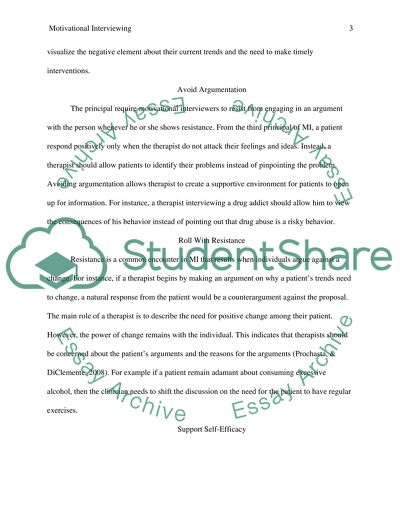Motivational Interviewing Research Paper Example | Topics and Well Written Essays - 500 words. Retrieved from https://studentshare.org/health-sciences-medicine/1604009-motivational-interviewing
Motivational Interviewing Research Paper Example | Topics and Well Written Essays - 500 Words. https://studentshare.org/health-sciences-medicine/1604009-motivational-interviewing.


